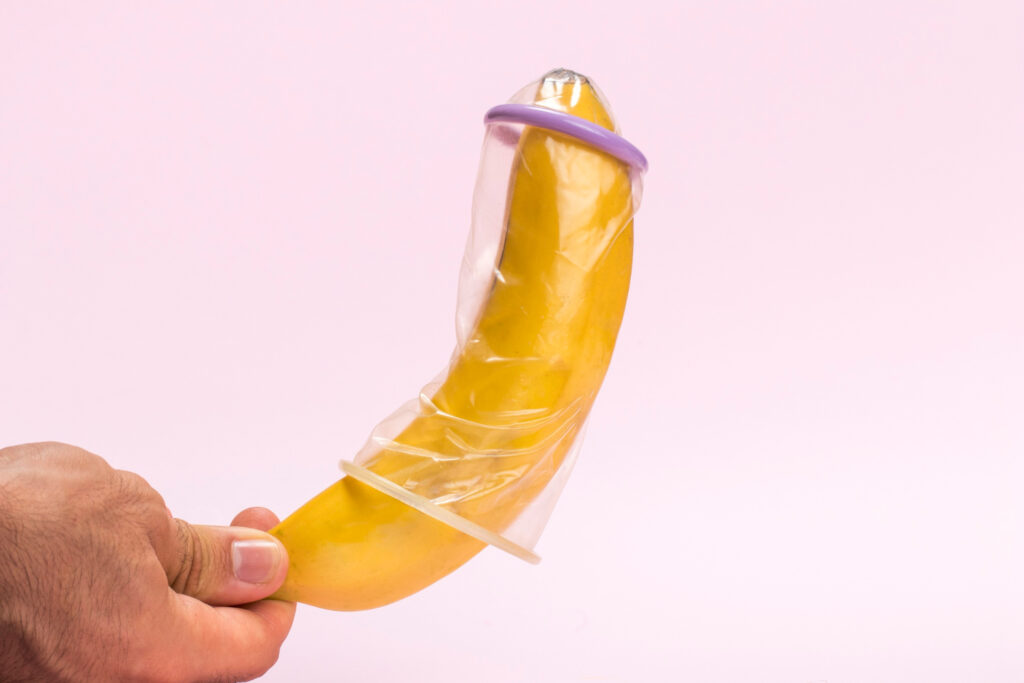The Myths and Facts About Masturbation and Your Health: How to Separate Fact from Fiction

The Harmful Effects of Masturbation on Your Body
Masturbation is a natural and common sexual behavior that most individuals engage in at some point in their lives. However, excessive masturbation can have harmful effects on the body. One of the potential consequences is physical irritation or injury. The repetitive friction and pressure that occur during masturbation can cause skin irritation, soreness, and even small tears on the genitals. These can lead to discomfort, inflammation, and increased risk of infection.
Additionally, excessive masturbation can have an impact on the hormonal balance in the body. Frequent ejaculation through masturbation may cause a temporary drop in testosterone levels. Testosterone is an essential hormone for maintaining overall health, including muscle mass, bone density, and sexual function. Therefore, excessive masturbation could potentially affect these aspects of health in the long term. However, it is essential to note that these effects are typically temporary and can be balanced out by maintaining a healthy lifestyle, proper nutrition, and adequate rest.
Masturbation and Infertility: Dispelling the Misconceptions

Masturbation and infertility have long been subjects of concern and speculation. Many misconceptions have emerged, causing unnecessary worry and anxiety among individuals. However, it is important to understand that masturbation does not directly lead to infertility. There is no scientific evidence to support this claim.
Infertility is often caused by a variety of factors, including hormonal imbalances, structural abnormalities, genetic disorders, or certain medical conditions. Masturbation, a normal and healthy sexual activity, does not interfere with the overall functioning of the reproductive system. In fact, it can have several positive effects, such as stress reduction and improved sexual health. It is essential to separate fact from fiction and dispel the misconceptions surrounding masturbation and infertility to alleviate any unwarranted concerns.
Does Masturbation Lead to Erectile Dysfunction?

One common misconception surrounding masturbation is its supposed link to erectile dysfunction (ED). However, scientific research indicates that there is no direct causal relationship between the two. Erectile dysfunction is a complex condition that can have numerous underlying causes, such as cardiovascular disease, diabetes, hormonal imbalances, or psychological factors. While excessive masturbation may temporarily affect sexual performance, it does not lead to long-term erectile dysfunction. It is crucial to understand that masturbation is a normal and healthy sexual activity that can provide numerous benefits, such as stress relief, improved sleep, and enhanced self-awareness.
Various studies have examined the potential effects of masturbation on erectile dysfunction. One study conducted by researchers at the University of Chicago found no significant association between masturbation frequency and the risk of erectile dysfunction. Another study published in the British Journal of Urology International concluded that there is no evidence to support the notion that masturbation leads to ED. These findings suggest that masturbation, when practiced in moderation, does not pose a risk to erectile function. However, if an individual experiences persistent or recurrent difficulties with achieving or maintaining an erection, it is important to seek medical advice to identify and address the underlying causes of erectile dysfunction.
Debunking the Myth: Masturbation Causes Mental Health Disorders

One common myth surrounding masturbation is the belief that it can cause mental health disorders. This notion has been perpetuated by cultural taboos and misinformed beliefs. However, it is important to separate fact from fiction when discussing this topic.
Numerous scientific studies have been conducted to explore the impact of masturbation on mental health, and the consensus among experts is clear: masturbation does not cause mental health disorders. In fact, masturbation can have several positive effects on mental well-being. It has been shown to release endorphins, which are natural mood elevators, and can also help reduce stress and promote relaxation. Additionally, masturbation can enhance body awareness and foster positive body image. It is crucial to dispel this myth and recognize that masturbation is a normal and healthy sexual behavior.
The Connection Between Masturbation and Prostate Cancer: What’s the Truth?
One question that has intrigued researchers and caused concern among men is the potential connection between masturbation and prostate cancer. Prostate cancer is a major health issue affecting men worldwide, so understanding the factors contributing to its development is crucial. However, when it comes to the relationship between masturbation and prostate cancer, the truth may be more nuanced than previously thought.
Although some early studies suggested a potential link between frequent masturbation and an increased risk of prostate cancer, more recent and comprehensive research has shed light on the topic. In fact, several studies have now found that masturbation may actually have a protective effect against prostate cancer. For example, a study published in the journal European Urology involved over 30,000 men and concluded that men in their twenties who ejaculated frequently had a lower risk of developing prostate cancer later in life.
However, it’s important to note that this finding does not imply that masturbation is a guaranteed preventive measure against prostate cancer. Other lifestyle factors, such as healthy diet, regular exercise, and avoiding tobacco and excessive alcohol use, also play a significant role in prostate health. Additionally, more research is needed to fully understand the mechanisms behind this potential protective effect. It is always recommended to consult with healthcare professionals and undergo regular prostate screenings to detect and treat any potential issues in a timely manner.
Certainly! Here’s a short data table on the connection between masturbation and prostate cancer:
| Connection Between Masturbation and Prostate Cancer | Key Concepts | Credible Source |
|---|---|---|
| Potential Protective Effect | – Key Concept: Some studies suggest that regular ejaculation, whether through sexual intercourse or masturbation, may have a potential protective effect against prostate cancer by eliminating potentially harmful substances from the prostate. | Harvard Health Publishing – Ejaculation Frequency and Prostate Cancer |
| – Considerations: While findings are intriguing, more research is needed to establish a definitive link, and other factors influence prostate cancer risk. | ||
| Hormonal Influence | – Key Concept: Ejaculation can affect hormonal levels, and hormonal factors are implicated in prostate cancer development. Regular sexual activity or masturbation may help maintain a healthier hormonal balance. | European Urology – Sexual Activity and Prostate Cancer Risk in Men Diagnosed at a Younger Age |
| – Considerations: Hormonal influences are complex, and more research is needed to fully understand the relationship between sexual activity, hormonal balance, and prostate cancer. | ||
| Need for Further Research | – Key Concept: Current scientific understanding on the connection between masturbation and prostate cancer is inconclusive, and more rigorous research is required to draw definitive conclusions. | National Cancer Institute – Prostate Cancer Prevention (PDQ®) |
| – Considerations: While initial studies show interesting trends, it’s important to await more comprehensive research before making definitive claims. | ||
| Overall Prostate Health Benefits | – Key Concept: Regular ejaculation, including through masturbation, is associated with potential benefits for overall prostate health, such as reducing the risk of developing benign prostatic hyperplasia (BPH) or experiencing prostate inflammation. | Mayo Clinic – Prostatitis |
| – Considerations: Maintaining prostate health involves a combination of factors, including a healthy lifestyle and regular medical check-ups. |
Masturbation and Sexual Performance: Fact or Fiction?
Masturbation and sexual performance have long been a topic of interest and speculation. Many individuals wonder whether engaging in self-stimulation can affect their ability to perform sexually with a partner. However, despite the prevalence of this concern, there is limited scientific evidence to suggest a direct correlation between masturbation and sexual performance.
One widespread belief regarding masturbation is that it can lead to a decrease in sexual desire or erectile dysfunction. However, research indicates that there is no causal relationship between regular masturbation and these sexual issues. In fact, studies have shown that masturbation can actually have positive effects on sexual performance by promoting relaxation, reducing performance anxiety, and enhancing sexual self-awareness. It is important to understand that sexual performance is influenced by various factors, including overall health, psychological well-being, and the quality of the sexual relationship. Thus, attributing difficulties in sexual performance solely to masturbation may oversimplify the complex nature of human sexuality.
That being said, it is worth noting that excessive masturbation or engaging in compulsive sexual behaviors, also known as sexual addiction, can have negative consequences on overall well-being and sexual relationships. However, these situations are typically associated with underlying psychological or emotional issues rather than the act of masturbation itself. It is important to differentiate between healthy sexual behaviors and compulsive behaviors, and seek professional help if concerns arise. In conclusion, while there is no substantial evidence to support the notion that masturbation negatively impacts sexual performance, maintaining a balanced and healthy approach to sexuality is key to overall well-being.
Can Masturbation Affect Hormonal Balance?
Masturbation is a natural and common sexual activity that many individuals engage in. However, there have been claims that it can impact hormone levels in the body. While there is limited scientific research specifically linking masturbation to hormonal imbalance, it is important to understand how hormones function in the body and the factors that can affect their balance.
Hormones play a crucial role in regulating various bodily functions, including sexual development, reproduction, metabolism, and mood. Testosterone, for instance, is an important hormone in males that affects sex drive and muscle mass. Some theories suggest that excessive masturbation may lead to a decrease in testosterone levels, potentially affecting hormonal balance. However, current scientific evidence does not provide substantial support for this claim.
Masturbation and Sexual Addiction: Understanding the Difference
Masturbation is a normal and healthy sexual activity that is practiced by both men and women. It is a natural way of exploring one’s own body and experiencing sexual pleasure. However, there is a misconception that masturbation can lead to sexual addiction.
Sexual addiction, also known as hypersexuality, is a recognized behavioral disorder characterized by an excessively intense preoccupation with sexual thoughts, fantasies, urges, or behaviors. It is important to differentiate between regular masturbation and sexual addiction, as they are not the same. While masturbation can be a pleasurable and satisfying activity, sexual addiction involves compulsive and uncontrollable behaviors that can have negative consequences on an individual’s personal and professional life.
It is crucial to understand that not everyone who masturbates excessively or frequently is a sexual addict. Sexual addiction is a complex condition that often requires professional help and intervention. If you or someone you know is concerned about compulsive sexual behaviors, it is advisable to seek guidance from a qualified healthcare professional who can provide proper support and treatment options.
The Impact of Masturbation on Relationships: Separating Reality from Fiction
The impact of masturbation on relationships is a topic that often sparks debate and speculation. There are various beliefs surrounding this issue, but it is important to separate reality from fiction in order to gain a better understanding.
Firstly, it is crucial to note that masturbation is a normal and natural sexual activity that many individuals engage in, regardless of their relationship status. It is a personal choice that can be a part of a healthy sexual expression. Contrary to some beliefs, masturbation does not necessarily indicate a lack of interest or satisfaction in a romantic or sexual relationship. In fact, studies have shown that individuals in satisfying and fulfilling relationships may still engage in masturbation as a means of self-exploration and self-pleasure. This can actually enhance their sexual experiences within the relationship by fostering a deeper understanding of their own desires and preferences.
Additionally, concerns have been raised about the potential impact of masturbation on the emotional connection between partners. However, research indicates that masturbation can coexist with a strong emotional bond within a relationship. Open and honest communication about individual sexual needs and desires is crucial, and couples who can have these discussions tend to have more satisfying and fulfilling sexual lives. Ultimately, the impact of masturbation on relationships varies greatly depending on the individuals involved, their level of communication and understanding, and the overall dynamics of their relationship.
It is important to remember that every individual and relationship is unique, and what works for one couple may not work for another. The key lies in open and honest communication, respect, and understanding. By focusing on these aspects, couples can navigate the impact of masturbation on their relationship and create an environment of trust and sexual satisfaction.
Masturbation and Physical Fitness: Debunking the Myths
Regular physical activity is widely recognized as a key component of a healthy lifestyle. But what about the impact of masturbation on physical fitness? There are a few myths floating around that suggest a link between the two, but let’s delve into the facts and debunk these misconceptions.
Firstly, there is no scientific evidence to support the notion that masturbation directly affects physical fitness. Masturbation is a normal and healthy sexual activity that does not require excessive energy expenditure or exertion. It is unlikely to have a significant impact on your overall fitness levels or athletic performance. In fact, engaging in regular exercise and leading an active lifestyle can actually have positive effects on sexual health. So, rest assured, enjoying a bit of self-pleasure is not going to hinder your journey towards physical fitness.
Masturbation and Sleep: Does It Affect Your Rest?
Sleep is an essential component of our overall well-being, and it is natural to wonder if masturbation can have an impact on our ability to rest. While there is limited scientific research specifically examining the relationship between masturbation and sleep, anecdotal evidence suggests that the two may be connected.
One possible explanation is that masturbation can lead to increased arousal, which may make falling asleep more difficult for some individuals. The release of dopamine and endorphins during sexual activity can elevate heart rate and activate the mind, making it harder to wind down and relax. Additionally, some people may experience a post-orgasmic refractory period characterized by a period of alertness, which can further disrupt the transition into sleep. However, it is important to note that these effects can vary greatly depending on the individual, and more research is needed to establish a direct link between masturbation and sleep quality.
The Truth About Masturbation and Personal Well-being
Masturbation is a natural and normal part of human sexuality. It is a form of self-stimulation that can provide pleasure and release sexual tension. Many individuals wonder about the impact of masturbation on personal well-being. Research suggests that masturbation can have both physical and psychological benefits.
Physically, masturbation can help relieve sexual tension, reduce stress levels, and enhance relaxation. It is also believed to improve blood circulation and promote better sleep. Additionally, it can strengthen pelvic muscles and contribute to better sexual health. Some studies have even suggested that regular masturbation may lower the risk of prostate cancer in men.
Psychologically, masturbation can help individuals explore their own bodies, desires, and preferences, leading to a better understanding of their own sexuality. It can be a healthy way to cope with feelings of loneliness, anxiety, and even depression. However, it is important to note that excessive masturbation, like any other behavior, can potentially become problematic and interfere with daily activities and relationships.
To ensure a balanced perspective, it is essential to consider individual differences, cultural norms, and personal values when discussing the relationship between masturbation and personal well-being. It is always recommended to prioritize open communication, self-care, and seeking professional help when needed. Understanding one’s own boundaries and engaging in activities that promote overall physical and mental well-being are vital for a healthy and fulfilling life.
Is masturbation harmful to my body?
No, masturbation is not harmful to your body. In fact, it can have several health benefits such as reducing stress, improving sleep, and promoting relaxation.
Can masturbation lead to infertility?
No, there is no scientific evidence to support the claim that masturbation leads to infertility. Masturbation is a normal and healthy sexual activity that does not have any impact on fertility.
Does masturbation cause erectile dysfunction?
No, masturbation does not cause erectile dysfunction. In fact, it can actually help improve sexual function and performance by promoting blood flow to the genitals.
Is it true that masturbation can cause mental health disorders?
No, there is no evidence to suggest that masturbation causes mental health disorders. Masturbation is a natural and normal part of human sexuality and is not linked to the development of mental health issues.
What is the truth about the connection between masturbation and prostate cancer?
The truth is that there is no conclusive evidence to support the idea that masturbation increases the risk of prostate cancer. In fact, some studies suggest that regular ejaculation, whether through masturbation or sexual intercourse, may have a protective effect against prostate cancer.
Does masturbation affect sexual performance?
No, masturbation does not affect sexual performance. In fact, it can help individuals become more familiar with their own bodies and enhance their sexual experiences with a partner.
Can masturbation affect hormonal balance?
No, masturbation does not have a significant impact on hormonal balance. Hormonal changes that occur during and after masturbation are temporary and within normal physiological ranges.
What is the difference between masturbation and sexual addiction?
Masturbation is a normal and healthy sexual activity, whereas sexual addiction is a compulsive behavior that interferes with daily life and relationships. It is important to differentiate between the two and seek professional help if you believe you may have a sexual addiction.
How does masturbation impact relationships?
Masturbation itself does not necessarily have a negative impact on relationships. However, open communication and mutual understanding about individual sexual needs and desires are important to maintain a healthy and satisfying relationship.
Does masturbation affect physical fitness?
No, masturbation does not have any significant impact on physical fitness. Engaging in regular exercise and maintaining a balanced diet are the key factors for physical fitness.
Can masturbation affect sleep quality?
Masturbation can actually have a positive impact on sleep quality for many individuals. It can promote relaxation and release endorphins, which can help improve sleep.
Overall, how does masturbation contribute to personal well-being?
Masturbation can contribute to personal well-being by providing sexual pleasure, reducing stress, improving sleep quality, promoting relaxation, and enhancing self-awareness and body confidence. It is a normal and healthy aspect of human sexuality.






